How Long Should Your Blog Articles Be? (With Word Counts for Every Industry). Word count. Is word count important? In September of 2016, Backlinko released their own research that found that the ideal word count had dropped a little bit, and “the average word count of a Google first page result was 1,890 words.” Although the ideal word count of each of these three studies varies, it’s still obvious that long form is best. First of all, it covers a topic with a level of depth that’s simply impossible with a shorter post. Now you may have come across this Viperchill article that mentions that the average post length of the top five blogs in the finance industry was only 1,225. So I would say that 1,000 words is a reasonable word count in the tech industry. Most of the recruiting content that I’ve read is fairly stat heavy but isn’t exceptionally long. What word count do you usually shoot for with your content?
Word count.
It’s a topic that receives a lot of coverage these days.
Bloggers and content marketers are always wondering what’s the ideal word count to shoot for.
Should every single piece be long form, or is it better to opt for shorter pieces?
It’s a valid question and something that I have researched extensively.
The purpose of this post is to shed light on just how long your blog articles should be.
There’s one thing I always want to make clear regarding word count.
It only matters if the content is good.
Word count is not a standalone ranking factor. Word count only has merit if the content quality is high!
You can produce a 10,000-word article. But if the content and quality suck, then the article doesn’t deserve to get ranked. You lose.
Is word count important?
Yes, it is, and that’s why I write about it often.
But word count is only important when coupled with super high quality.
I work with clients in virtually every vertical. Whenever I enter a new industry, my team and I conduct thorough research to find out everything we can about top-notch content within that industry.
Then, we begin to engage in content marketing while constantly looking at our data. We track engagement metrics, rankings, CTRs, social shares, etc.
After a while, a story emerges from the data. We are able to find out what kind of content ranks the best, and how long they should be.
I’m basing the following word counts off of that research and experience.
Allow me to begin with a brief history of the word count all the way up to where it’s at today.
The evolution of the ideal word count
I remember when not that long ago the average blog post was usually somewhere between 500 and 800 words.

Sometimes even shorter.
Take for instance Seth Godin’s blog.
He’s known for extremely short posts that are often under 200 words.
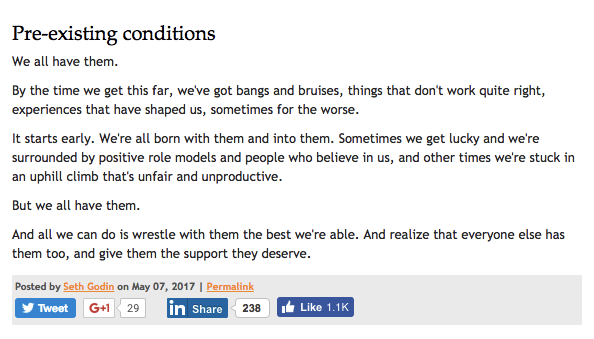
And he gets crazy shares because, well, he’s Seth Godin.
But this definitely isn’t the norm.
Unless you’ve been living under a rock for the past couple of years, you know that long-form content reigns supreme.
There have been several studies performed that prove this to be true.
Take for instance one study that analyzed articles to determine the correlation between social shares and content length.
Here’s what they found.
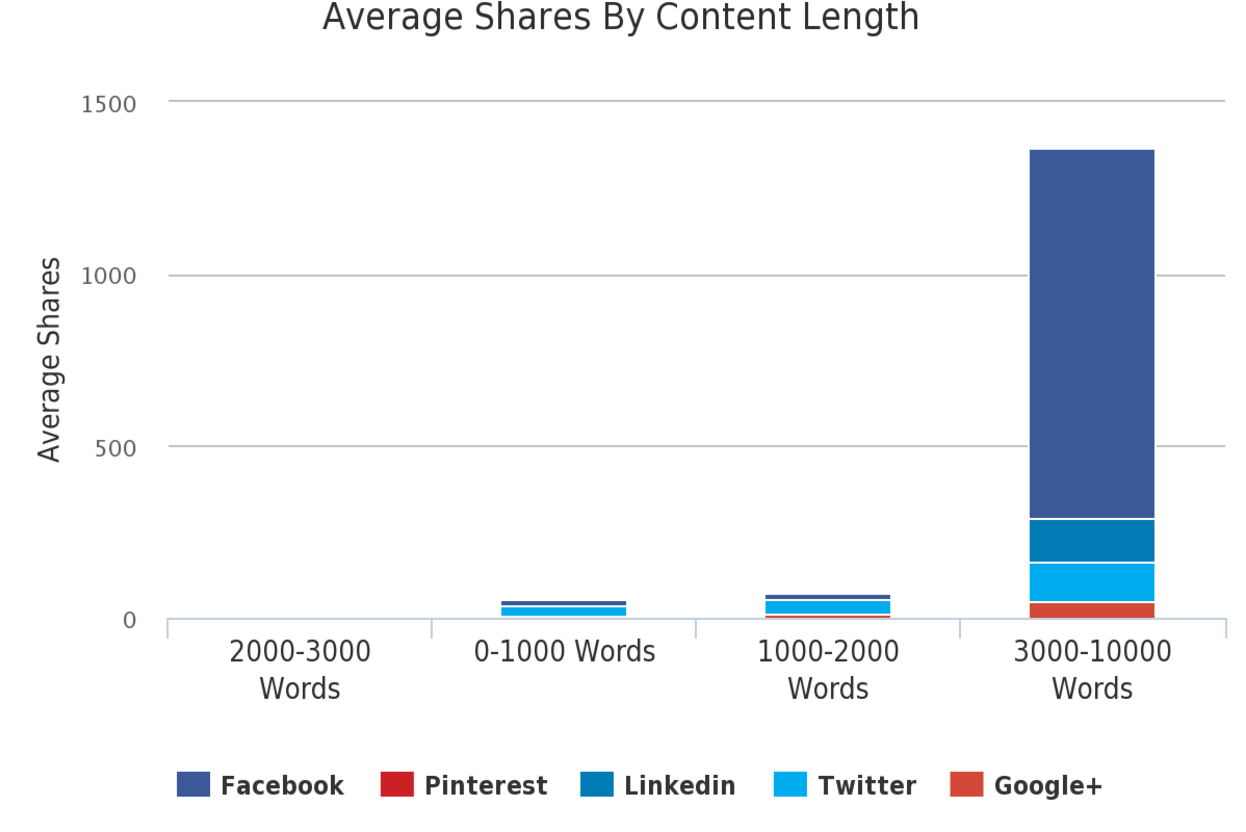
According to their findings, “3,000 – 10,000-word content gets the most shares.”
Another study from SerpIQ concurred.
However, their findings were a bit different and found that just over 2,450 words was the sweet spot.

In September of 2016, Backlinko released their own research that found that the ideal word count had dropped a little bit, and “the average word count of a Google first page result was 1,890 words.”
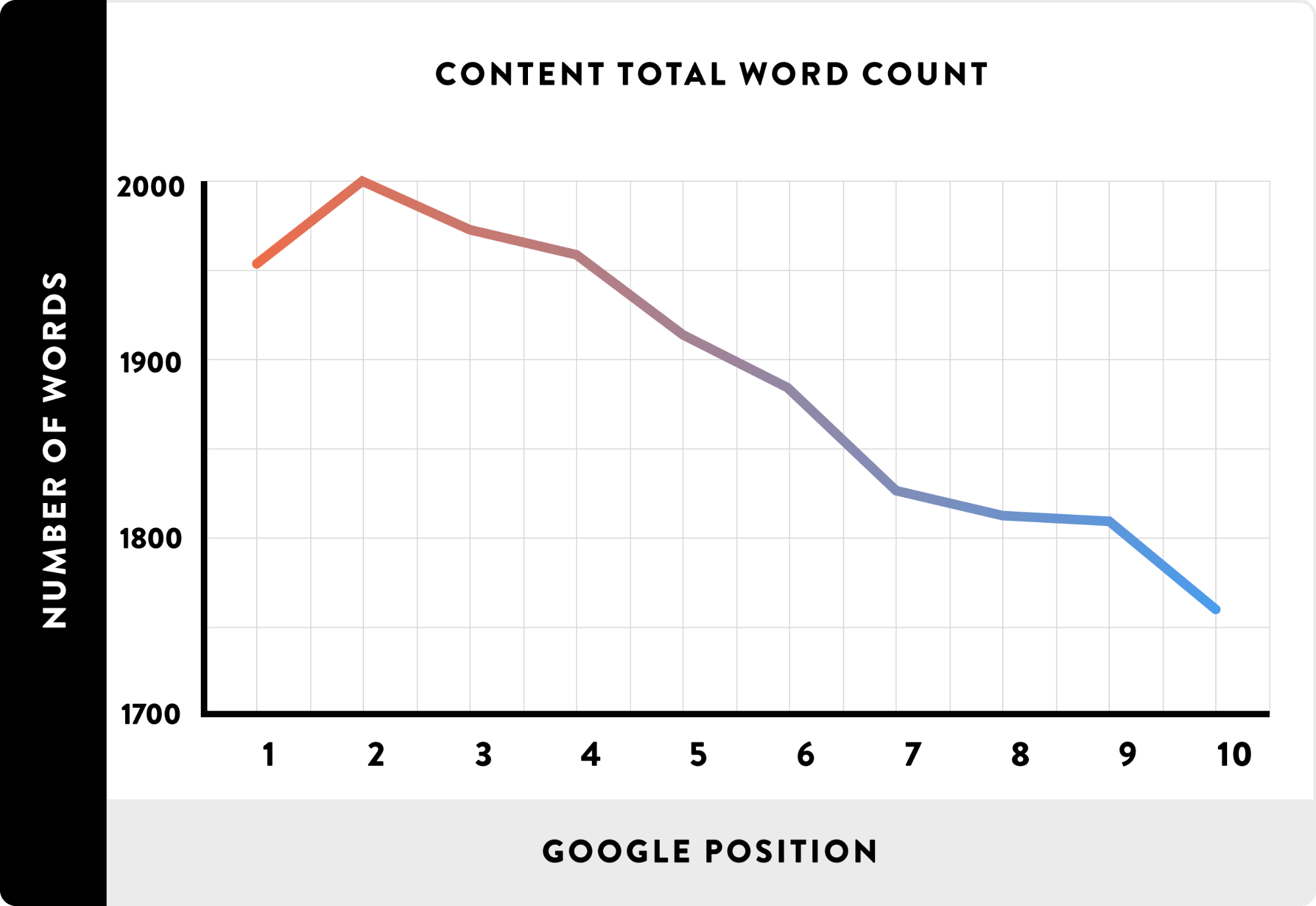
Although the ideal word count of each of these three studies varies, it’s still obvious that long form is best.
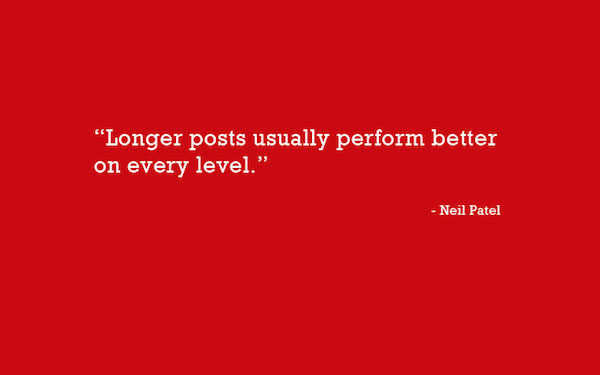
And I really doubt that this is going to change anytime soon.
The psychology behind long-form content
Here’s my take on why long-form content is so successful.
First of all, it covers a topic with a level of depth that’s simply impossible with a shorter post.
Therefore, long form creates a perception of higher quality.

Second, it’s perfect for scanning.
See, most people don’t read content word for word.
They simply scan.
In fact, Nielsen suspects that visitors only read somewhere around 20 percent of an article.

Here’s a chart that “shows the maximum amount of text users could read during an average visit to pages with different word counts.”
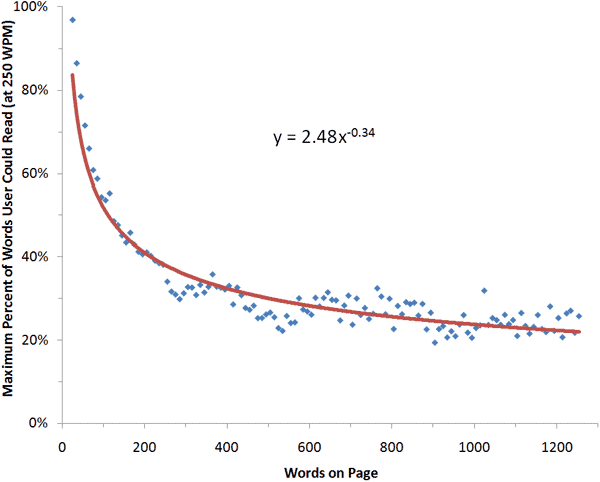
As you can see, seldom do visitors read a long-form post in its entirety.
Instead, what they do is scan and check out headers, sub-titles, and bullet points as well as look at the images.
Third, I feel like creating content with a high word count leaves readers feeling like they’ve just read something epic when they leave.
There’s a certain sense of satisfaction that thin, short content just can’t provide.
I know that I often find myself immediately backing out of short posts under 500 words, especially if they lack images or headers.
I just feel like it has no real value to offer.
So that’s why I only create long-form content these days.
And you know what?
It’s totally worked for me.
Here are the Google results for “content marketing guide.”
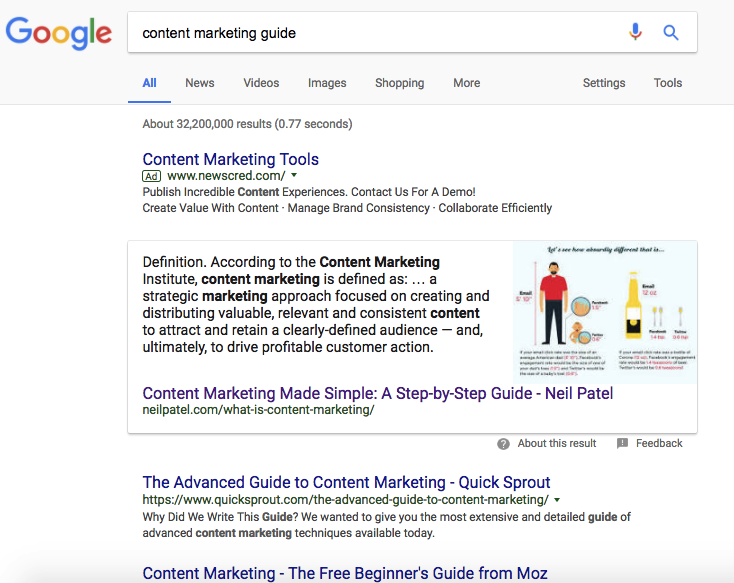
If you’ll notice, my two sites, NeilPatel.com and Quick Sprout rank #1 and #2 for this keyword phrase.
And a big reason is because of the length and level of detail that I go into.
So the bottom line here is that your average, run of the mill, 500 – 800 blog post used to be totally sufficient.
But things have changed dramatically.

Now it’s hard to gain any real traction without going long form (at least in most industries).
But the question is, just how long should your blog articles be?
Of course, they need to be “long,” but how long?
I’ve fielded this question so often that this article provides some suggested word count ranges for each industry.
Following these suggestions should help you find the sweet spot so that you can get more shares, higher rankings, and better engagement among your readers.
But don’t forget — quality remains paramount, not word count alone.
FinTech 2,000 – 2,150 words
Financial technology or (FinTech) is a growing industry, and “global investment increased more than twelvefold from $930 million in 2008 to more than $12 billion in 2014.”

The topics are fairly complex and therefore require substantial depth to adequately cover.
Shooting for around 2,000 – 2,250 words should be just about perfect for scratching your readers’ itch.
Faisal Khan has one of the most influential Fintech blogs.

One of his recent articles, “MoneyGram! Who will buy it?” clocks in at 2,173 words.
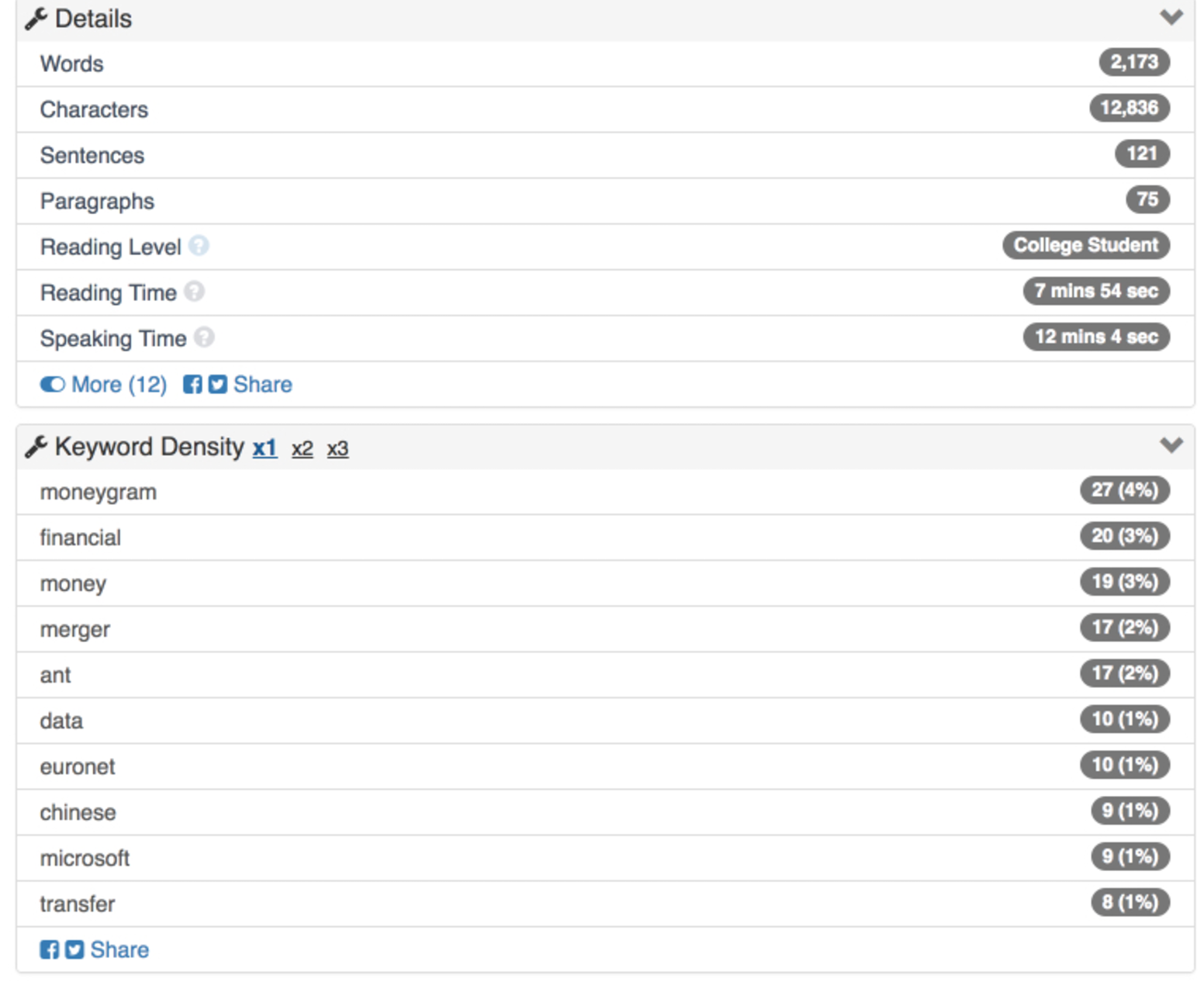
This is an ideal length for explaining an issue in depth.
Images are important for pretty much all content. Khan’s blog, mentioned above, includes images, graphs, charts, and other information to maintain thoroughness and visual appeal.
But I would really make it a point to include a significant amount of data-driven images like graphs and charts in FinTech content.
This chart that Khan used in his article provides a wealth of information.
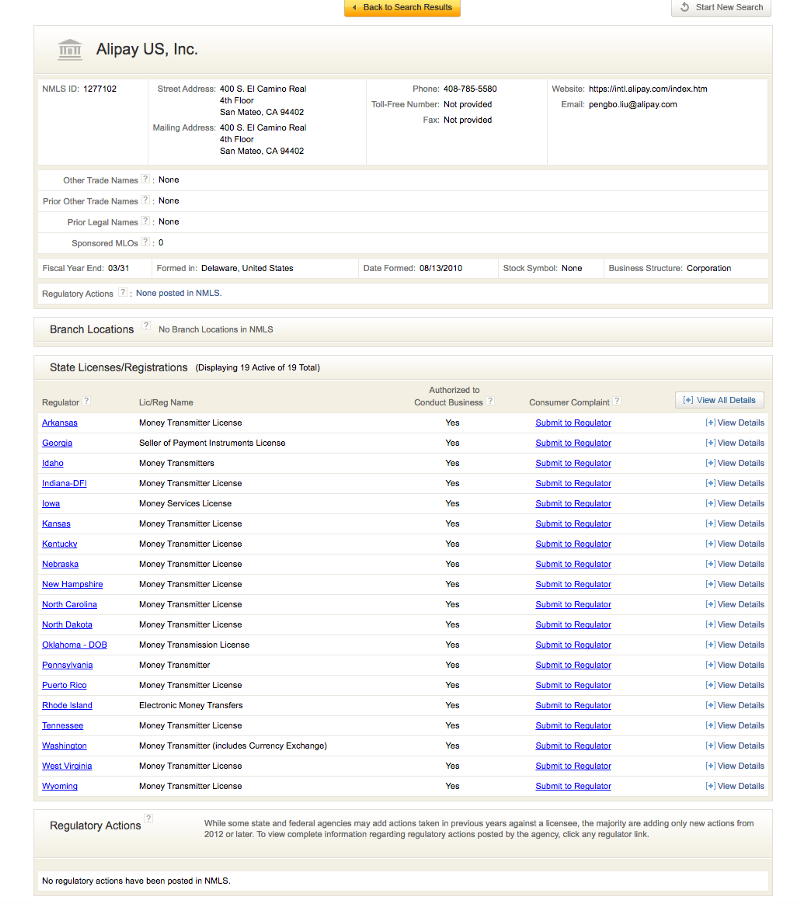
This should help readers connect the dots and understand industry trends and patterns.
Finance – 2,100 – 2,500 words
According to Snap Agency, content that received the most social shares was over 2,500 words on average throughout 2016.
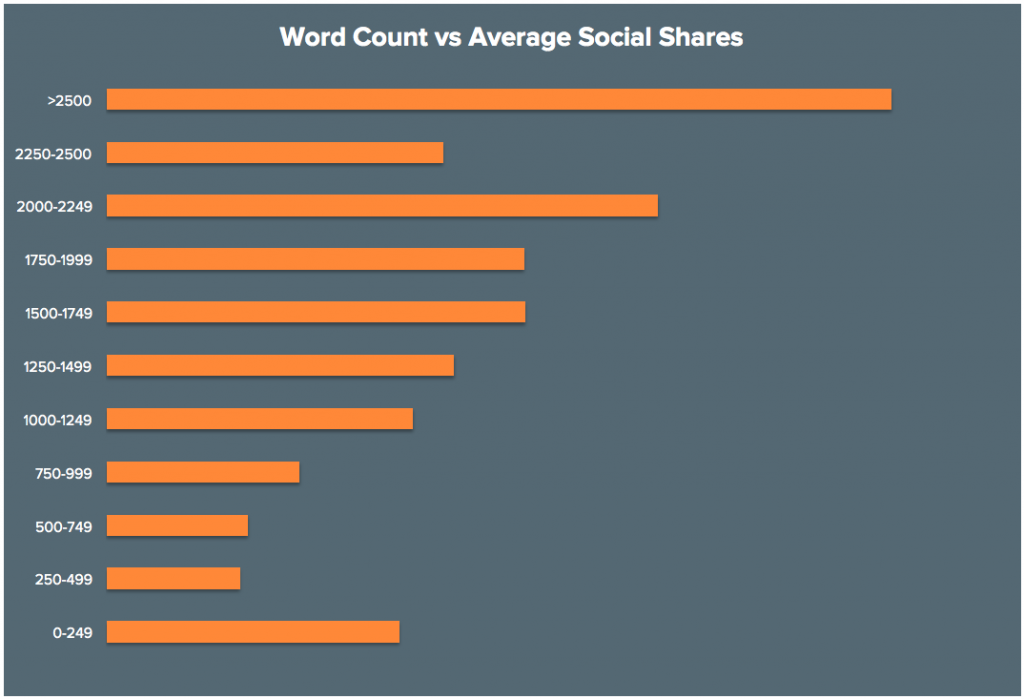
When it comes to the largest volume of organic traffic, the ideal word count was 2,250 – 2,500.
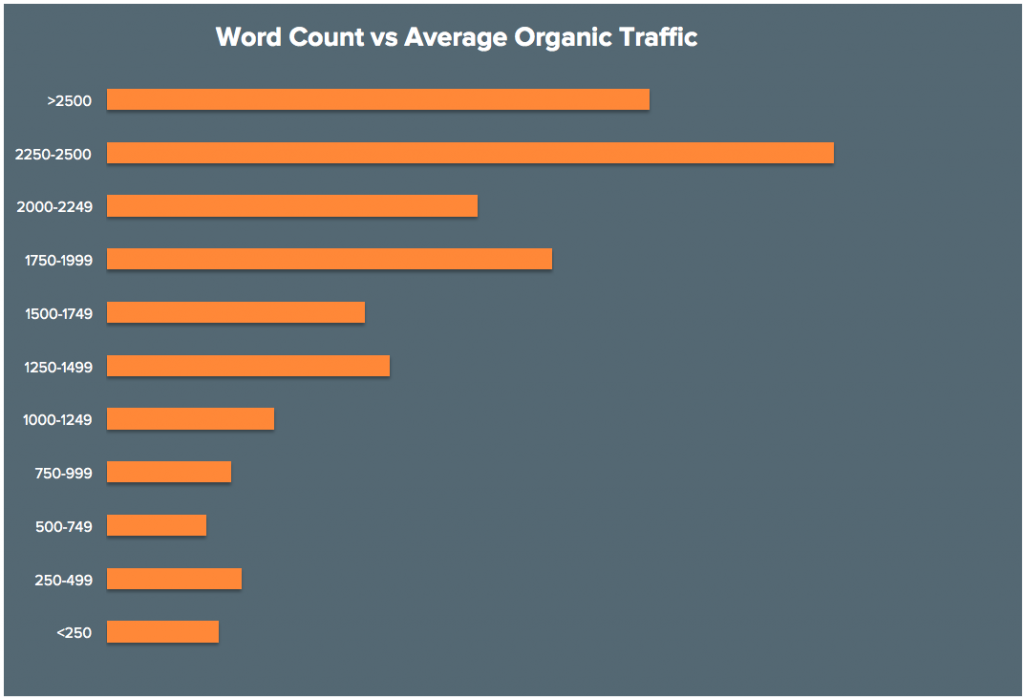
2,100 – 2,500 words is a solid number to aim for if you’re in the finance industry.
Now you may have come across this Viperchill article that mentions that the average post length of the top five blogs in the finance industry was only 1,225.
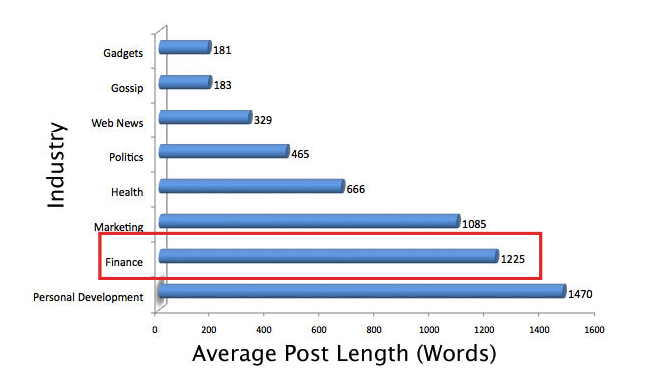
But here’s the thing.
This was from back in 2010 when 500 – 800 words was considered the norm.
And as you can see, finance is on the longer end of the spectrum.
My logic and experience show that you should go pretty friggin’ long with content in the finance industry.
I keep up with TheMotleyFool, a top finance site.
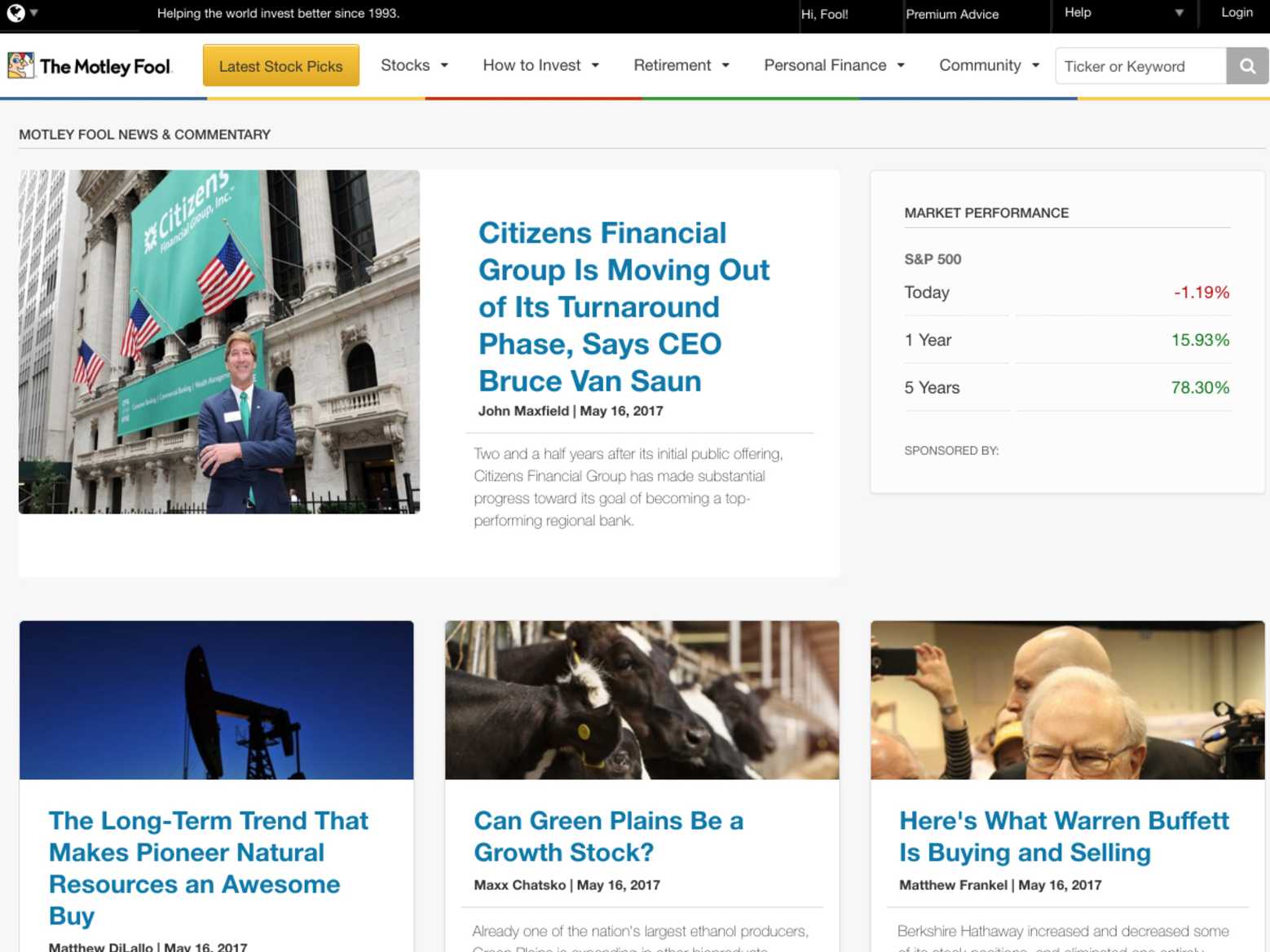
Some of their news articles are shorter. But their feature pieces and interviews often…
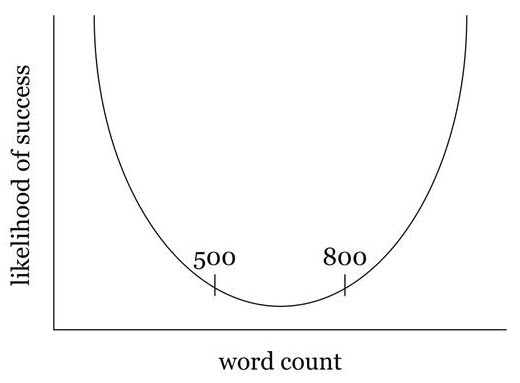
COMMENTS